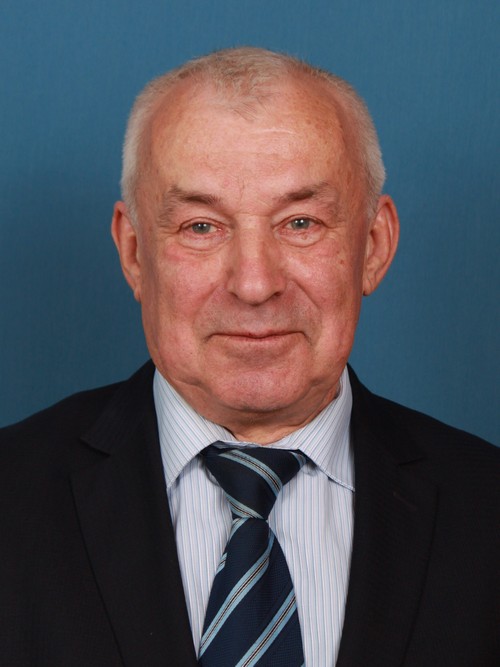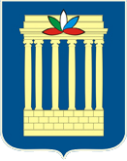Evgeny Ivanovich Berestov: ‘It is great to work with young people; you can learn a lot from them’
Evgeny Ivanovich Berestov, Professor of the Department of Transport and Technological Machines, is one of the leading researchers of the Belarusian Russian University. He has written over 200 publications, including 4 monographs; his contributions to research have been appreciated by Belarusian and foreign scientists.
We asked Evgeny Ivanovich some questions about his professional activity.
-What research and development projects are you currently involved in?
-I am engaged in the research work in the field of soil-tool interaction of earthmoving machines. The topics of my research are mainly of a theoretical nature. I have managed to create analytical methods of calculation with the help of modern technologies and describe the fluctuations of the resistance force arising when digging soil with such machines as a bulldozer, a scraper or an autograder. The essence of this research is that optimal parameters of a machine can be determined using computer technologies.
-Do you have any important projects and goals?
-There are a lot of projects. They are aimed at creating fundamentally new working tools for soils. These ideas arise precisely from the analysis of the results that I have received using modern software.
-How did your career in science start?
-When I was a 9th-grader, my brother defended his dissertation. At that moment I decided that I would defend both a PhD dissertation and a Doctor’s one. This is the way it was.
-How did your University career start?
-I was a student at the Mogilev Machine-Building Institute at the Department of Construction and Road Machines. After graduating from the University, I served in the army for two years. Then I worked at the Diaprojector plant in Rogachev for another two years. One day I read an announcement about postgraduate studies at the Institute. At that moment I thought: ‘It’s my bag’. I took a postgraduate course and in 1979 graduated from the graduate school. My research advisor was Anatoly Mefodievich Shchemelev, who worked at our department at that time. In 1982, in Omsk, I defended my dissertation ‘Study of Influence of the Cutting Angle on the Process of Soil Excavation with a Scraper.’ Then I worked independently on my doctoral dissertation ‘Scientific Basis for Modeling the System “Soil-Working Equipment of Earthmoving Machines” at Excavation by Layers’. In 1999 I defended my doctoral dissertation at the Moscow Institute of Civil Engineering.
-What does teaching mean for you?
-It is great to work with young people; you can learn a lot from them. I have noticed that teachers look completely different from the people who work in manufacturing. Teachers are more energetic, dynamic and demonstrate a positive attitude. That’s it.
-Do you work with young scientists?
-Now it is not easy to find a graduate student. Four doctoral candidates defended their dissertations under my supervision. They are members of our University, Alla Petrovna Smolyar and Artem Vladimirovich Kulabukhov, and two doctoral candidates from Iran, Aliasgar Afkhami Alishakh and Ekhsan Jalilvand Khorran.
-What qualities should a modern scientist possess?
-A modern scientist must have a curious, inquiring mind and question everything. Even well-known truths and theories. Don’t believe in anything unquestionably, otherwise, you won’t succeed.
-What are you most proud of?
-That’s a difficult question to answer. Throughout my professional career, I have managed to develop the theory on retaining walls and backfill with broken profiles of the world-famous scientist V.V. Sokolovsky, and find a solution, which he hadn’t had. I can be proud of it. Besides my professional activities, I enjoy travelling. And I am proud that I have been able to combine these two things.
-What places have you visited?
-I have been to almost every country in continental Europe, except Hungary, Romania, Switzerland and Albania. My friends and I have cycled through half of the countries in Europe. I went on bike trips by myself as well. In 2008 I cycled 900 km along the roads of Germany, Denmark, Sweden and Poland in 10 days. Now I can hardly believe it myself. I have gone skiing, for example, from Mogilev to Rogachev, trekking in the Caucasus Mountains, boating on the lakes of Latvia. I have been to Iran twice. There I went boating on an underground lake. This is a unique sight. Last year I visited the ruins of the castle built by Zarathustra. I saw the fire of Zoroastrians, which has been burning for 900 years.
-What do you like most about your work?
-If you asked me about negative aspects of my work, I wouldn’t be able to give you a definite answer. I like everything. And there is nothing I can put first.
-If you had an opportunity to talk to any scientist of any time, who would it be, and what would you talk about?
-Sokolovsky, of course. I have a lot of questions; I would like to finally understand his theory.

